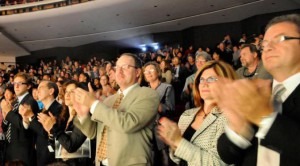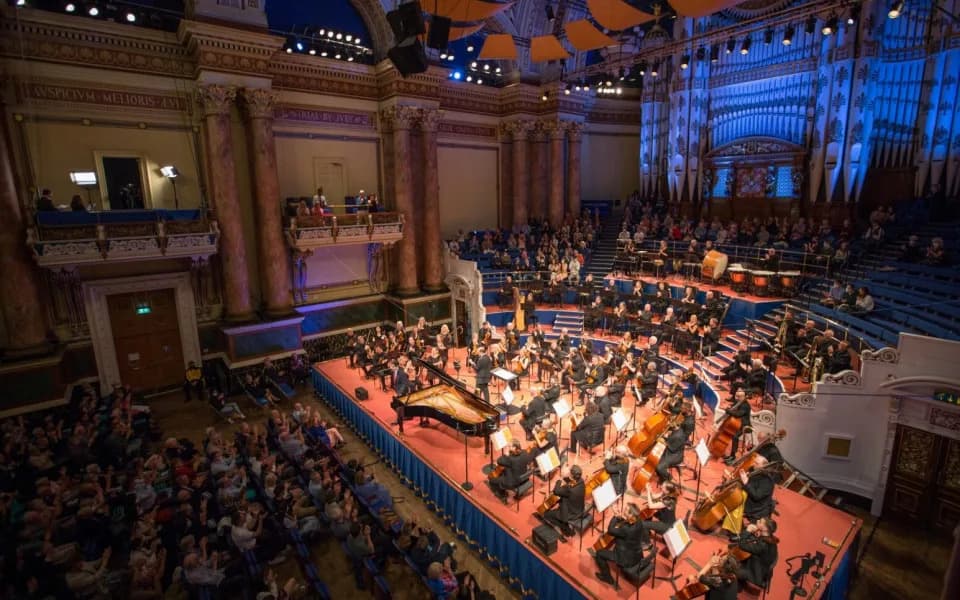 Concert
Concert
noun
1. a public musical performance in which a number of singers or instrumentalists, or both, participate.
2. a public performance, usually by an individual singer, instrumentalist, or the like; recital:
Earlier this year, I took part in a concert for a medical charity. It was held at an intimate and convivial venue in central London. I’ve performed there a couple of times, and on this occasion, the audience was almost entirely comprised of doctors and people associated with the charity. Plied with champagne before the concert, when people came down to the music salon for the concert, one had the sense of them relaxing into their seats, happy to enjoy whatever we presented to them. The programme was varied, with performances by a soprano, a violinist, piano solo and piano 4-hands, and included works by Debussy, Gershwin, Saint-Saens, Rachmaninov, Grainger and Ravel. During the interval and after the concert, members of the audience expressed their delight at the music making and congratulated us on our performances. Throughout the evening, there was a very palpable sense of a shared experience and that the audience had really enjoyed the evening’s entertainment.
Which set me thinking……. Are concerts purely for “entertainment” or do they serve another more serious or different purpose or purposes?
Of course, “entertainment” needn’t be something amusing or funny (though the word is more commonly associated with humour). Entertainment is a form of diversion, an agreeable occupation for the mind, or something affording pleasure. People (including me) gain enormous pleasure from live concerts, and, for many, concerts offer a wonderful escape from the everyday and the mundane. Take this a step further, and for some a concert offers something more transcendent, a near-religious experience (even for the non-religious). A concert can take the listener on a journey outside themselves; it can uplift and even heal.
Since time immemorial, people have come together to make and share music. That sense of community, of belonging, of a shared experience remains very important today. There is a feeling of collaboration between performer, music and audience which is infectious and absorbing: witness people at the Proms or at a pop concert – you can see the sense of engagement and absorption in their faces as they listen to and engage with the music (and of course without an audience, a “concert” would cease to be).
Live music can be really really exciting: a live concert is a “one-off”, and that excitement, spontaneity and sense of risk is what makes concerts so compelling – and something one can never truly get from a recording. I love the sense of the music being created “in the moment” (of course, I understand that the performer has in fact spent many careful hours preparing the music). The composer Helmut Lachenmann says of concerts: “Some people go bungee-jumping or climb a mountain to have an existential experience – an adventure. People should have this same experience in the concert hall.” How performers create this sense of “adventure” is discussed later in this article.
Nor do I believe there is such a thing as a truly “bad concert”, for we each take from the performance something personal and unique, and while I may not have enjoyed a certain performance, others have and who I am to tell them they are wrong? The meaning of music is different for each individual listener, and whether it merely “entertains” or offers something deeper, it is the way music “speaks” and communicates that makes it so magical. This sense of magic is heightened when one hears live music.
Messiaen: Quartet for the End of Time
For musicians, concerts are an integral part of their raison d’etre and an opportunity for them to share their musical vision with the audience. Music was written to be shared and the audience share their appreciation of what is coming from the performer, thus making a concert a collaborative experience. Performing should have less to do with ego and more with the musician’s desire to share the music with others.
Bringing spontaneity to one’s performance can be tricky, especially if one is playing the same programme over a series of concerts. As the British pianist Stephen Hough put it in a radio programme about practising, one needs to be a “perfectionist” in the practise room to allow one to be “bohemian” on stage. By which he means if one is very well-prepared, one has the confidence to “let go” when one performs. Often the best and most memorable performances are from performers who understand the balance between being perfectionist and bohemian. At other times, it is the sense of intense concentration and profound understanding and affinity with the music which can create a moving and memorable performance.
On a more prosaic/commercial level, concerts can be used to promote a new CD or related material, or launch of a recording label or similar. And for composers, concerts provide a means of getting their music out there, heard, appreciated and reviewed.
Finally, the late great Claudio Arrau on the subject of concerts:
“I don’t know what will happen, but I trust it will be wonderful”



